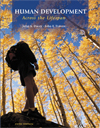 Human Development Across the Lifespan, 5/e John S. Dacey,
Boston College
John F. Travers,
Boston College
Early Adulthood Physical and Cognitive Development in Early Adulthood
Outline- Initiation into adulthood
- The transition to adulthood in the United States
- Types of initiation activities in the United States
- Religious
- Sexual
- Social
- Educational
- Economic
- Implications of the lack of an initiation ceremony
- Attempts to include initiation rites in American life
- Delinquency
- Counterculture
- Sports
- Ascribed versus achieved identity
- Physical development
- The peak is reached
- Summary of physical development in early adulthood
- Declines in various human functional capacities with age
- Organ reserve
- The effect of lifestyle on health
- Choices of foods
- Link between heart disease and cholesterol
- Link between diet and certain types of cancer
- Obesity
- Use of alcohol
- Prevalence
- Health problems associated with alcoholism
- Use of tobacco
- Prevalence
- Health problems associated with tobacco use
- Personality types of smokers versus nonsmokers
- Reasons for smoking
- Effects of passive smoking
- Physical fitness
- Health benefits of physical fitness
- Cognitive development
- Intellectual/ethical development
- Perry's nine stages divided into three broad categories
- Dualism
- Relativism
- Commitment
- Three delays or deflections
- Temporizing
- Escape
- Retreat
- "Women's ways of knowing"
- Silence
- Received knowledge
- Subjective knowledge
- Procedural knowledge
- Constructed knowledge
- Patterns of work
- The phenomenon of the dual-career family
- Women are still considered responsible for the maintenance of the family
- The relationship among work factors and job satisfaction for women
- Multiple roles in dual-career families
- Men's psychological adjustment to the increased role of wives as providers for the family
|
| 


 2002 McGraw-Hill Higher Education
2002 McGraw-Hill Higher Education